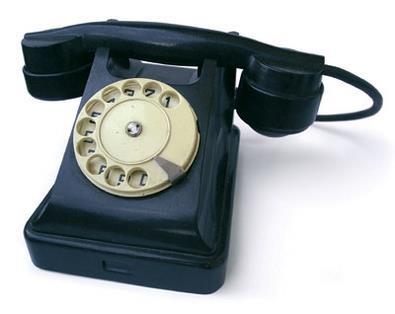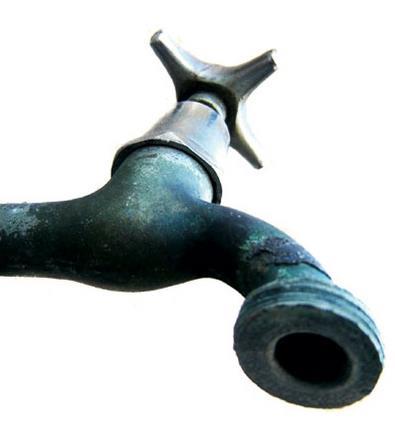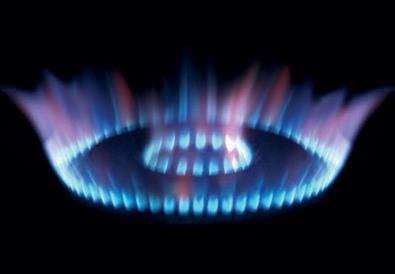The supply of gas, water and electricity seems to present terrible problems to the companies whose sole business is to do just that – and things are getting steadily worse. Lorraine Cushnie finds out why
Last year, Building characterised the utilities sector as a bunch of supervillains with the ability to delay construction progress by their powers of muddle and inaction. Incredibly, a study by the National Federation of Builders and the National Contractors Federation has found that the situation may have grown worse.
According to last year’s research, 50% of projects experience delays or inconvenience in installing water and 43% have problems getting gas and electricity connected. That study was a pilot, based on the responses of just 28 companies. This year we have the results of a full-scale survey of 507 companies, entitled The Utility Network Company’s Performance in Providing Connections Report. Of the four major utilities – water, gas, electricity, telecoms – there was found to be a net improvement in the services supplied by phone companies. The other three utilities all performed poorly, with electricity showing a shocking decline in consumer faith – 42% of the respondents said that the service had worsened, compared with 11% who believed it had improved.
Stephen Morris, the north-west regional chair of the NFB, puts it succinctly: “Things have got no better, and we could argue strongly that they’ve got worse.”
Nearly nine out of every 10 projects are now delayed or suffer problems because of the utilities’ slack service. Complaints included non-adherence to an agreed programme, excessive time taken to issue quotations or agree cost. In 41% of such cases, the industry suffered a financial loss as a result. Morris says: “The frustration is now so great we have to do something about it.”
However, utilities companies are difficult to confront. The cost and scale of their infrastructure means that they are natural monopolies – the exception here is telecoms, as phone lines are easier to open up to more than one service provider. Ed Badke, the director of built environment at the RICS, says: “The utilities are not easy to hold to account because of their position in the supply chain. In a normal contract if you don’t perform, penalties are easy to implement but not with them.”
The utilities do have voluntary codes of conduct, but Radke argues that these are not working. He calls on regulators to act. Badke says it is up to Ofcom, Ofwat and Ofgem to use their powers to improve the performance of the industries they oversee. The regulators were supposed to mimic the pressure of competition on price and service. As the three case studies below show, in the construction industry at least, they have so far failed.
David Woodward,
contracts manager at Cruden Group
Woodward was working on a demolition project and needed to get gas supplies to the site disconnected. National Grid (formerly Transco) took between four and six weeks to work out how many connections they had on the site, something Woodward says the energy group should have known automatically.
There were more problems when National Grid eventually made it on to the site. Woodward says: “They sent out a team to carry out the disconnection. The trouble is the team that does the work on site is also the emergency response team. They turn up and you think you can leave them but then they get an emergency call and they’re off.”
Even when the site team turned up, Woodward says they spent an “inordinate” amount of time looking for the connection points. To save some time and money Woodward and his team looked for the connections themselves, which he estimates cost him up to £10,000. However, it was cheaper than the alternative. “It saves about 5-6 weeks in delays and each delayed week costs us £20,000-30,000,” he says.
Woodward believes that the problems are exacerbated by the utilities’ lack of customer care and accountability. “When you talk to someone about the disconnections they won’t give you their name or their number and every time you ring up you have to start from the beginning with a new person, which causes more delays and misunderstanding.”
Woodward says clients are aware of and understanding about the delays and extra costs, but the money has to be found from somewhere. “In order to control the costs we have to sacrifice quality.”
Building contacted National Grid, which sent the following email in response: “National Grid’s gas distribution business is responsible for looking after 82,000 miles of pipeline and delivers gas to around 11 million customers. Our activities, including connections, are covered by a range of standards of service and we are continually looking at ways to improve performance. We are disappointed with the survey results and are committed to providing a good service.”
Martin Woodhouse,
managing director, Benfield Construction
Last year Woodhouse told Building about his attempts to get a connection from Severn Trent Water for a student residence in Coventry. He envisaged a programme of 30 weeks but when he applied to Severn Trent, it took three months to get a quote and 10 weeks to begin installation.
One year on, Woodhouse says he is optimistic about future projects, thanks to a meeting that the NFB arranged with the company – but he is still waiting to see words put into action. “We had a chance to tell Severn Trent our concerns. But we’ve got to see the evidence.”
Unfortunately, Woodhouse says other utilities, namely electricity and gas, are still causes for concern.”We’re building a retirement village and applied to have the mains put in July but it took until September to get the services in,” he says.
Woodhouse thinks that subcontractors used by the utilities are partly to blame for the decline in service. “They don’t worry about their customers as long as they continue to get their contracts renewed,” he says.
The managing director also has some sharp words for the regulators. “They are fairly useless – they have no teeth. They take two to three weeks to respond and then they say none of their guidelines have been breached.”
Colin Rae,
development director Scotland, Places for People
Rae is in a good position to understand the problems with utilities. Places for People has 16 sites in Scotland and he believes that at least two-thirds have suffered delays as a result of late utility connections. This is despite the fact that Places for People contacts the relevant company when the project is still at the design stage.
Rae estimates that for gas, electricity and water services, there is an average six-month delay from asking for a quotation to receiving one, and the problems do not stop there. “When we get the quotation it’ll have gone up by 15-20% and there’s no guarantee that that will be the final price. Also, before they do anything meaningful you have to pay the full amount upfront,” he says.
Telecoms

- 18% of respondents said they had experienced problems getting connections to their sites
- 11% said the service was worse or much worse compared with the middle of last year
- 16% said that the situation had improved
Electricity

- 64% of respondents said they had experienced problems getting connections to their sites
- 42% said their service was worse or much worse compared with the middle of last year
- 68% said there were poor communications within the utility
Water

- 41% of respondents said they had experienced problems getting connections to their sites
- 26% said problems were worse or much worse compared with the middle of last year
- 34% of those affected by problems with the water companies said they had lost money as a result
Gas

- 44% of respondents said they had experienced problems getting new connections to their sites
- 32% said service was worse or much worse compared with the middle of last year
- 82% of those affected by problems with gas suppliers said it had delayed their project
Postscript
Have you had a bad experience with a utility? Tell us about it at building@cmpi.biz


























No comments yet